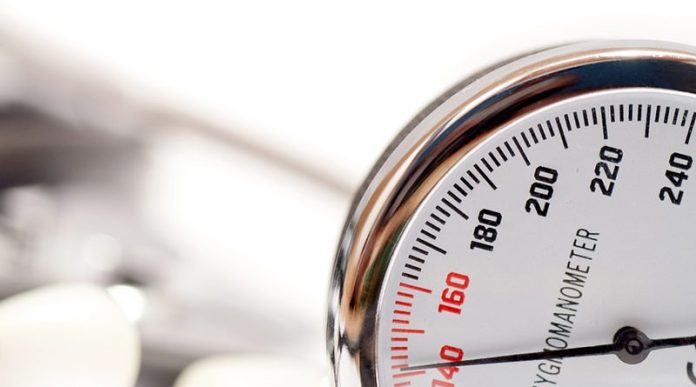Hypertension is an increasingly common term and often appears on the list of bullet points under headings such as ‘lifestyle diseases’. What exactly is hypertension, and are we at risk?
In layman’s terms, hypertension is high blood pressure. As our heart pumps blood into our circulatory systems, our arterial walls flex as the force of blood passes through them. High blood pressure occurs when the force of the blood against the walls of the vessels is too high.
When arterial walls are too rigid or clogged, the heart must work extra hard to push the blood through the body. This places unnecessary strain on the heart as well as the blood vessels, which can result in heart failure, stroke or an aneurysm.
What Causes Hypertension?
Most cases of high blood pressure have no direct identifiable causes.
However, incidents can be broken down into two specific types. Primary hypertension develops gradually and seems to be related to age and general health. Secondary hypertension is more likely to stem from an underlying condition such as kidney disease or a thyroid problem.
What most doctors agree on, however, is that most cases of high blood pressure can be avoided or successfully managed by making sensible lifestyle choices. There it is again. The way we choose to live, what we put into our bodies, and our level of activity impacts so many areas of our health, that it’s imperative to pay close attention to them.
We encourage you too look closely at the risk factors associated with hypertension and ask yourself if this looks like your life, and what changes can you make?
Risk Factors for Hypertension
We can’t help growing older, and it’s true that this disease is more prevalent in people over the age of 60. In the same way, congenital diseases such as kidney or cardiovascular issues may place you in a higher risk group.
However, the following list contains risk elements that are entirely within your control:
- Obesity – The more weight you carry, the more blood your body needs. As the volume of blood pumping through your vessels increases, so does the pressure on the artery walls, and on your heart muscles. Overweight people may also suffer from sleep apnoea which raises your risk further.
- A sedentary lifestyle – Having a strong heart (gained from regular aerobic exercise) means that it can pump more blood with less strain.
- Smoking – Smoking immediately increases your heart rate which raises blood pressure. Over time, it results in narrow, rigid artery walls and makes blood clots more likely.
- Stress – Stress hormones increase the heart rate and constrict the blood vessels.
- Diet – As ever, what we put into our bodies can help us or harm us. A diet high in salt, low in potassium and other essential nutrients creates the ideal conditions for hypertension.
Symptoms of Hypertension
As with so many modern illnesses, hypertension most often offers us no clues. In some cases, people may experience headaches, nosebleeds or difficulty breathing, but no definitive indicator that our hearts are battling. Even in advanced stages when a heart attack or a stroke is imminent, we may well remain blissfully unaware. Our bodies simply do their best with what they have, until they fail.
A regular check-up – especially for older ones – will allow you to keep a close eye on your blood pressure.
The results of unmanaged hypertension are serious and include heart failure, aneurysm, loss of vision, stroke, and dementia.
Treatment for High Blood Pressure
Before we start popping pills, our doctors are most likely to recommend some lifestyle changes that will benefit your blood pressure, as well as many other aspects of your health.
- Get moving. Include mild aerobic exercise in your daily routine for at least five days of the week – even a brisk walk will help.
- Stop smoking and drink less alcohol.
- Increase your intake of fresh fruits and vegetables. Cut out processed foods and those that are high in fat, salt and sugar.
- Find a way to manage your stress levels.
- Get plenty of good quality sleep.
In many cases, making one or more of the changes above have allowed the body to fix what is broken and patients have seen a reduction in blood pressure to safe and manageable levels.
Of course, in severe cases, medication may be required. However, these come with side effects including nausea, tiredness, headaches and anxiety.
At our ALTMEDCARE Clinics we take a holistic approach to the treatment of hypertension:
- Body vitals check – Blood pressure, pulse, oxygen saturation percentage, weight and peak flow
- Blood pathology tests
- Dietary and Lifestyle advice
- Medical weight program, if necessary
- Oxygen based therapies
- Intravenous therapies to reduce free radicals damage, repair arteries and increase blood flow
- Natural food supplements to improve circulation
- Pharmaceutical medication if necessary
- Referral to cardiologists or cardiothoracic surgeons if required
- Follow up and monitoring
If you are suffering from hypertension then we’d like to assist. My team and I am keenly interested in treating your whole body in the most natural way possible.















